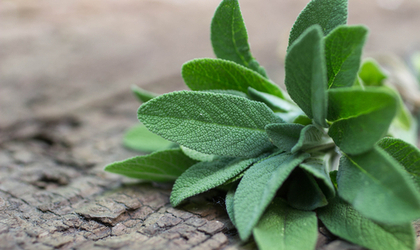
During uncertain times we may experience a period of heightened emotions - this is perfectly normal. Engaging the fight or flight response is characteristic of human-kind and is a functional reaction to a perceived threat to survival. The key to take home from this explanation is ‘normal’. However, normal can be uncomfortable and disconcerting and we naturally want to channel our concerns through coping mechanisms. These mechanisms come in many forms, but it’s the ones that support our health and wellbeing that we should be nurturing.
Historically worries and anxiety have been positioned as a form of fragility - why? This is perfectly natural behaviour that is necessary for us to move through our emotions to mitigate the fallout. Making space to accept our feelings and be curious about them can create a sense of freedom. So, accept feelings of tension and acknowledge their presence, as pushing them into the subconscious will only feed anxieties.
Just as a myriad of emotions are gifted to us, so too are the ways in how we can deal with them. Positive and inspiring coping strategies are accessible to us all and require little to no input from anyone else. Below are some ideas on how to relax and we hope that one will resonate with you.
Sharing is caring
Drowning in responsibility is a sure way to burn-out. Nobody likes that feeling of exhaustion and that you physically and mentally just can’t carry on. Find ways to delegate tasks, no matter how small they may be, and they will give you precious moments where you can apply your attention to priority tasks. During challenging times most people will recognise that stepping up their contribution is a way of helping those who are struggling. Being open about what you need and being grateful will only gain you respect and the valuable assistance you need.
Sharing your struggles and concerns with other people experiencing similar events is group therapy. Diverse and varied viewpoints help us to keep an open mind, and appreciate the different challenges other people may face. The sense of release when you discuss feelings is immeasurable, and you will be helping others to unburden their worries, providing mutual support and consolation during tough times. So, don’t be shy, unpack your troubles to help quell anxiety.
Distraction
Diverting any negative behaviours or thought patterns is a positive approach to dampen down anxiousness. Engage in an activity, whether it’s as banal as cleaning out the fridge or sprucing up your pot plants - it’s not what you do that matters, just that you do something. Distraction techniques can come in the form of colouring, going for a walk, even painting your nails or calling a friend. If your heart is beating at a pace because it’s emotionally charged, try to implement your distraction method to find a little inner peace.
Meditation
Who knew that taking just 5-10 minutes every day to be still and pay attention to your breath can bring so many rewards? Slow, deep breathing activates the parasympathetic nervous system and signals to the body that now is a good time for rest and relaxion. Get comfortable and inhale deeply, filling your belly, lungs, chest and send the breath into your back. Then take a long slow exhale. Repeat for 5 breaths and let go of any tensions with each exhale. Thoughts will come and go, acknowledge them and then let them pass. If it helps to give you focus you could repeat a mantra on the in-breath such as ‘I am calm’ and on the out-breath ‘I am at peace’. Find what works for you. The emphasis is to be compassionate to yourself, take notice of your breath and check-in with your emotions and how you feel, and to release any tensions and relax. Meditation has a cumulative effect, so regular practice cultivates greater benefits, some of which are shown below.
-
Mindfulness
-
Focus
-
Calm
-
Improved sleep
-
Improved communication
-
Empathy
-
Relaxation
If you’re looking to quieten the ‘noise’ surrounding your life, begin with a short practice and build-up the duration slowly.
Movement
The vaunted health and wellbeing benefits of exercise are well reported, however, to garner the value of physical activity doesn’t mean you have to go flat-out on the treadmill or deadlift 20kg. The pressure of performing high-octane workouts is finally off the menu. Now it’s all about moving in a way that feels good to you. Create your own exercise regime and try to include the four fitness pillars:
Cardiovascular
Rhythmic movement that raises your heart rate – running, cycling, dancing
Strength
Lifting weights, using your own body weight for resistance – heavy gardening (digging), hill walking/climbing stairs, lifting weights
Balance
Exercises that strengthen muscles to improve stability – tai chi, yoga, Pilates
Flexibility
Exercises with a range of motions – yoga, tai chi, stretching
Journaling
Keeping a book of personal thoughts and events is nothing new - the act of writing a diary dates back to the 17th century. We now refer to this pastime as journaling but in essence the premise is still the same. Writing harnesses creativity, allows for self-expression, lets us share out intimate thoughts and worries without judgement. Taking pen to paper when consternation strikes can help you gain perspective of the emotion you are experiencing. Perhaps ask why you are feeling this way and challenge it. Keeping a journal is a therapeutic way to let go of anything that doesn’t serve you and helps build resilience.
You Might Also Like

Keri
Keri Filtness has worked in the Nutrition Industry for 19 years. She is regularly called upon for her professional comments on health and nutrition related news. Her opinions have been featured by BBC3, Prima, Vitality, The Mirror, Woman’s Own and Cycling Weekly, amongst others. She has also worked one to one with journalists, analysing their diets and health concerns and recommending changes and additions, where appropriate.
View More



